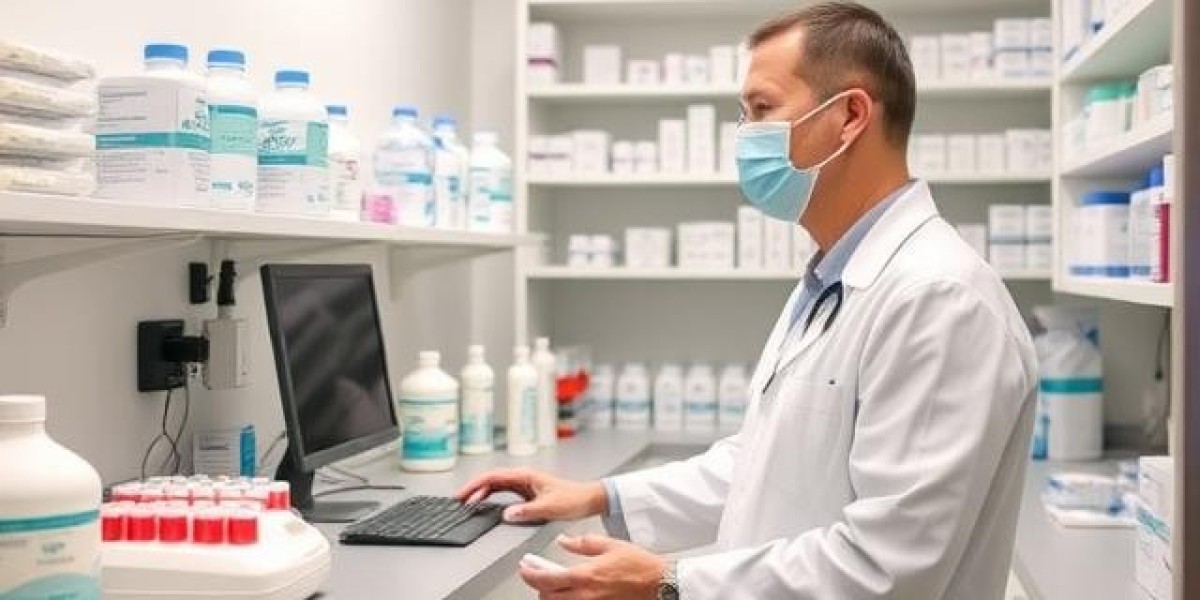A compounding pharmacy is a specialized type of pharmacy that customizes medications to fit the specific needs of individual patients. Unlike traditional pharmacies, which dispense pre-manufactured medications, compounding pharmacies prepare prescriptions in a variety of forms, such as creams, gels, liquids, capsules, and even suppositories, based on a doctor’s unique instructions. This process of compounding allows patients to receive medications tailored precisely to their dosages, ingredients, or delivery methods, which may not be available through standard pharmaceutical products.
The Role of Compounding Pharmacies in Healthcare
Compounding pharmacies play a vital role in healthcare by bridging gaps where standard medications fall short. Some patients may have allergies or sensitivities to certain ingredients found in mass-produced medications, such as preservatives, dyes, or fillers. In these cases, compounding pharmacists can eliminate these components, ensuring the medication is safe and effective for the patient. Furthermore, individuals who have unique medical needs, such as pediatric or geriatric patients, may require specific formulations of medications that are more convenient or easier to administer. For example, a compounding pharmacy may create liquid versions of drugs for children who cannot swallow pills.
Types of Compounded Medications
Compounded medications can come in several forms, depending on the patient's needs. Some common types of compounded medications include:
Oral Medications – Tablets, capsules, and liquids tailored to specific dosages that may not be available in standard pharmaceutical products.
Topical Medications – Creams, gels, ointments, and lotions used to apply the medication directly to the skin. This is often done for patients who need localized treatment or have trouble swallowing oral medications.
Hormone Replacement Therapy (HRT) – Compounding pharmacies are known for preparing bioidentical hormones that are customized for patients seeking hormone replacement therapy, such as estrogen, progesterone, and testosterone.
Veterinary Compounds – Compounded medications are also useful for pets, as animals sometimes require medications in forms that are not commercially available, such as flavored pet-friendly chewable tablets or liquid suspensions.
Injectables – Some medications require injections, and compounding pharmacies can prepare custom injectable doses based on a patient’s specific needs.
Benefits of Compounding Pharmacies
Customization – Compounding pharmacies offer personalized medication that is adjusted to the precise requirements of the patient. Whether it’s an allergy-free formula, a specific dose, or a different form of the medication, compounding makes it possible to cater to individual needs.
Access to Unavailable Medications – Some medications may no longer be commercially available due to discontinuation or are not available in the required form. Compounding pharmacies can recreate these medications in a customized form that is no longer widely produced.
Improved Medication Adherence – Custom medications are often easier for patients to take, leading to better adherence to prescribed treatments. For example, children or elderly patients may prefer a flavored liquid over a tablet, making it more likely they’ll follow their treatment plan.
Supporting Special Populations – Compounding pharmacies are particularly beneficial for certain populations, such as pediatric patients, geriatrics, or patients with chronic conditions, who require specific medications or formulations that aren’t available commercially.
Safety and Regulation of Compounding Pharmacies
While compounding pharmacies offer numerous benefits, patients should be aware that compounding involves a higher level of responsibility, both for the pharmacy and the prescribing healthcare provider. Compounding pharmacies must follow strict guidelines and protocols to ensure the safety and efficacy of the medication they prepare. The U.S. Food and Drug Administration (FDA) does not approve compounded medications but requires pharmacies to adhere to good manufacturing practices. Additionally, the Pharmacy Compounding Accreditation Board (PCAB) is an independent organization that accredits compounding pharmacies, ensuring they maintain high standards in quality and safety.
It’s important for patients to ensure they are working with a reputable and accredited compounding pharmacy, as improper compounding can lead to safety concerns, including incorrect dosages or contamination.
Conclusion
Compounding pharmacies serve an essential role in the healthcare system by providing customized medications that meet the specific needs of patients. Whether it’s creating a special dosage form, eliminating allergens, or helping patients who need access to medications that are no longer available, compounding pharmacies offer personalized care and treatment solutions. However, patients must ensure they are working with accredited and experienced professionals to guarantee the safety and effectiveness of compounded medications









